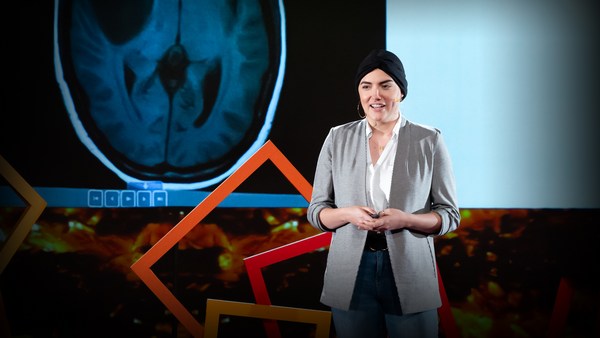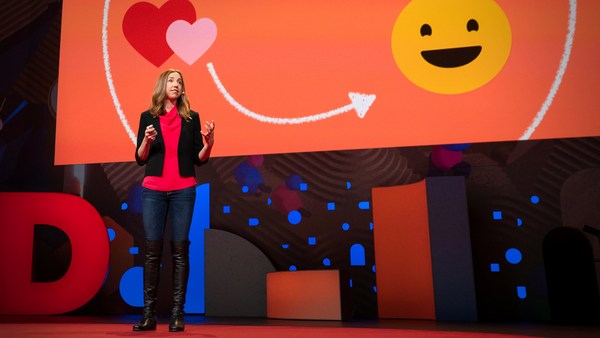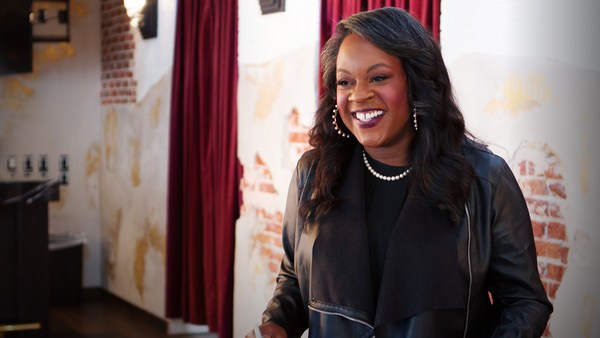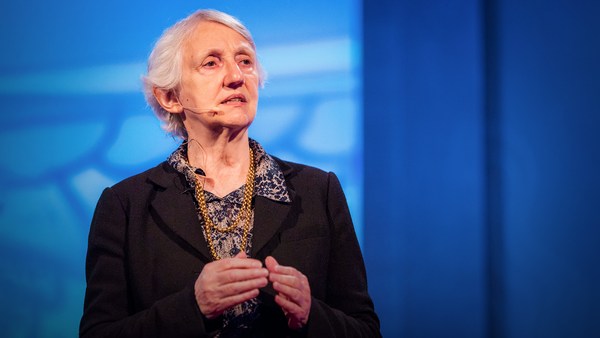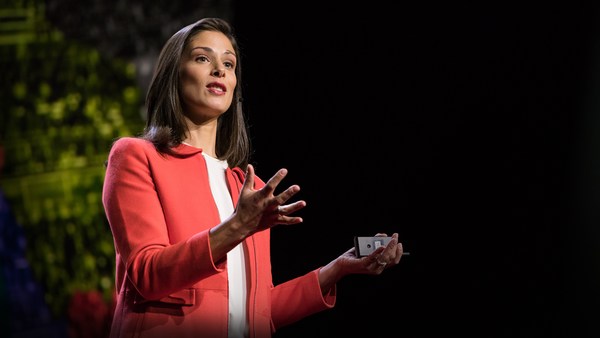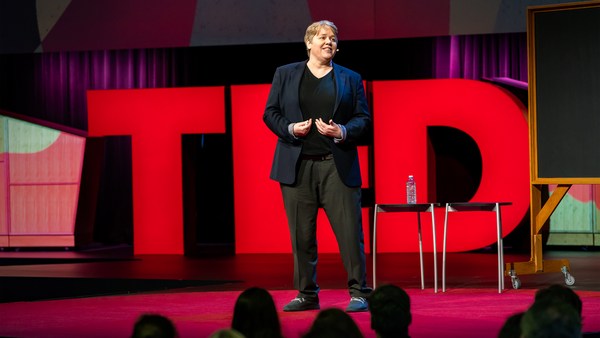This is it. Here we all are, together at last, to talk about optimism. If this isn't nice, I don't know what is.
Here's the problem: it's 2021. We are living through a global plague, one that revealed our worst instincts at the worst times. We are so divided that public health has become a power struggle. We pioneered a vaccine, a moon-landing level innovation, and then kept it among wealthy countries while poor ones suffered.
Against this backdrop, isn't talking about optimism, like discussing pagers or horse-drawn carriages? Isn't optimism obsolete, backwards and naive, given all we've been through? Shouldn't it be replaced with a more up-to-date cognitive technology?
Well, lots of people have replaced it with cynicism: the notion that humanity is greedy, selfish and dishonest. In 1972, 45 percent of Americans thought that most people can be trusted. By 2018, that had dropped to about 30 percent. We are living through a cynicism epidemic. I should know -- last year, it infected me, and I'm supposed to be immune.
I'm a psychologist and neuroscientist, and my whole career, I've studied the sunny side of human nature. My lab and I have found that giving away money activates similar parts of your brain as eating chocolate, and that helping other people through their stress calms our own. Our punch line is clear: there is good in us, and it does good for us.
Now, people love hearing this, but in 2020, I started to hate saying it. I was building hope in others while losing my own. I was evangelizing for human kindness all day and then doomscrolling at night. I was peddling something that I would never want to buy anymore. I felt like a fraud, or, at best, maybe a fax-machine salesman.
(Laughter)
But here's the thing. You might think that cynicism is a system upgrade that allows us to see who we really are. It's not. It traps us in a version of the world we don't want to live in, and one we don't have to.
One of my favorite studies of all time occurred in southeastern Brazil. Two fishing villages there are separated by just 30 miles. One sits by the ocean, where fishing requires large boats and heavy equipment. To make a living there, fishermen must work together. The other sits by a lake, where fishermen strike out alone on small boats and compete with one another. Years ago, researchers tested how people in each of these villages responded to a set of social experiments. Ocean fishermen trusted strangers and cooperated with their neighbors. Lake fishermen competed and mistrusted instead. But here's the crazy part. These folks didn't start out any different from each other, but the longer fishermen worked on the lake, the more they competed. The longer they worked on the ocean, the less they did.
Some families, schools and companies are like ocean villages. People trust, because they know others will earn it. Some are like lake towns -- people look out for themselves, because no one else will. Our social worlds shape us, like clay, into hopeful or cynical versions of ourselves. And right now, many of us are living in a lake town of historic proportion. Inequality has soared, injustice is all around, self-interest might as well be pumped into the water supply. These forces raise cynicism, and so do times of disaster. After the last 18 months, there's a real chance we could tip into a sort of cynical permafrost.
Now, I'm going to guess there may be some proud cynics in the audience today, and you might be thinking, "Good. More people should turn to the dark side. Optimism might feel nice -- so would calling tiramisu a health food, but we don't get to go around believing whatever we like." George Bernard Shaw tells us that the power of accurate observation is commonly called "cynicism" by those who haven't got it.
(Laughter)
107 years later, the cartoon philosopher Lisa Simpson taught us that as intelligence goes up, happiness goes down. Maybe hope does, too. Maybe cynicism is the price of being right.
Most people think so. 70 percent think cynics are smarter than noncynics; 85 percent think they would make better lie detectors. Most people are wrong. It turns out that cynics tend to perform less well than noncynics on cognitive tests. They earn less money, and they lose more often in negotiations. They're not even good at spotting bad guys. In one study, researchers conducted mock job interviews, asking half the candidates to lie and half to tell the truth. Cynics and noncynics watched videos of these interviews and guessed who was lying. And cynics did way worse. More generally, they assume liars are everywhere so can't pick real ones out of a crowd.
So cynicism might not be as smart as you think it is, but it's still powerful, because our stories about each other become self-fulfilling. Cynics are more likely to refuse intimacy and cooperation. They hurt others to avoid being hurt. They tend to spy on their colleagues and suspect their friends, and other people, unsurprisingly, react badly -- sometimes, acting selfishly in response. In other words, by mistreating others, cynics create the exact conditions they fear. They tell a story full of villains and end up living in it. I call this the cynicism trap, and my lab explores ways that people fall into it. In one study, we asked people how happiness works. Some thought that it's a zero-sum game, meaning that as one person's happiness goes up, another person's must go down. Now they're wrong. It turns out that when we act generously towards others, that tends to increase our happiness. But cynics acted on their illusion. When given chances to help strangers, they were less likely to do so. They ended up less happy as well. By hoarding well-being, they lost out on one of its key ingredients -- other people.
In other work, we asked Republicans and Democrats what it would mean to empathize with the other side. Some people saw politics as a war, and thought empathy would be as useful as bringing cotton candy to a gunfight. These folks didn't want to cooperate with the other side, or even to know them at all. In one study, we measured college students' cynicism about empathy and asked about the friends they made on campus. Here, each dot is a person, coded blue to red based on ideology, and each line is a friendship. Now, this was a pretty liberal campus, but nonetheless, noncynics managed to find ideologically diverse friends. Cynics stuck to their own kind. Now that's, of course, their right. But most of us wish our country was less divided, and empathy is critical to moving us towards that goal. By giving up on it, cynics lose that chance.
Our studies and many others give us a clear picture of the cynicism trap. When we decide everyone's out for themselves, we stop seeing their kindness. When we think the world is zero-sum, everyone becomes a potential enemy. These views spread across us, too. Parents pass on their suspicions to their kids. Politicians act in bad faith and damage voters' faith in each other. Media companies trade in judgment and outrage. Our cynicism is their product, and it is a growth industry.
So no, cynicism doesn't help us see reality more clearly, but it does change reality, poisoning our relationships, our lives and our culture. It is not a system upgrade, it's mental malware.
But we don't have to accept it. We can take control of our stories. To escape the cynicism trap, we have to. My lab tries to help. In one study, we taught people that happiness is not a zero-sum game, and that helping others helps us, too. These folks, compared to those in a cynical condition, donated more to charity afterwards, and they ended up happier as well. In other work, we changed how people thought about empathy in politics. Some people were randomly chosen to read a cynical essay. It began, and I'm paraphrasing, "You might think empathy is a weakness that will make you lose every argument, and you'd be right." Afterwards, we asked these folks to write a note about gun control to someone they disagreed with, and they sniped at each other. Here’s a voice actor reading what one Democrat wrote to a Republican.
Recording: “It’s hard not to state this bluntly. You should be in favor of stricter gun laws because you should care about the lives of other people more than your outdated feelings of machismo."
Jamil Zaki: And here’s a Republican writing to a Democrat.
Recording: "People need to know they're able to have the freedom to bear arms in order to protect themselves. You democrats don't get to take that away from us."
JZ: Basically, we recreated Twitter, by accident.
(Laughter)
Other people read a different essay. It began, "You might think empathy is a weakness that will make you lose every argument, and you'd be wrong." ... and went on to describe empathy as a strength in politics. Again, we asked these folks to write to an opponent about gun control, but this time, things changed. Here’s a Democrat.
Recording: "There are some common-sense regulations that we should implement to keep people safe. We all want what is best for the country, and there are things we can meet in the middle on to tackle the issue of gun violence."
JZ: And a Republican.
Recording: "Horrible crimes can be committed using guns ... everything from school shootings to murders because of racism and white supremacy. It's very understandable that you think it makes sense to make gun laws more strict. We're all reasonable people, and we just want what's best for our loved ones."
JZ: To us, this was wild. Remember, just like ocean and lake fishermen, these people did not start out any different, but just reading one essay turned some of them into new optimists and others into new cynics. This shaped how they acted, and their effect on other people. We sent all of these notes to people who really disagreed with the writer about gun control, and found that notes written by new optimists were more persuasive than those written by new cynics, more likely to make other people change their mind. In other words, we taught these people that empathy was useful, they used it, and it became useful.
This is what I want you to remember and what I want you to know: that if cynical stories can become self-fulfilling, our work shows that hopeful ones can as well.
Now, cynicism is not the only root of our problems, and optimism alone will not fix them. But it's hard to change a broken system if you think it's a mirror reflecting our broken nature. If people are selfish to our core, then toxic laws and practices are here to stay. But we can all choose to tell a different story. We can be skeptical -- demanding evidence before we believe in people -- but hopeful, knowing they can change for the better. We can notice their kindness even when the media doesn’t and envision systems built on that kindness. We can find other people in our neighborhoods, unions and faith communities who want the same thing. We can use our collective optimism to build pockets of solidarity and mutual aid, miniature ocean villages that can grow over time.
Now, this is the part of the talk where I'm supposed to tell you how I cured my own cynicism. But the truth is, I still struggle. Depending on the day or the hour, I promise, I can be as cynical as anyone here. But I see cynicism for what it is -- a psychological quicksand that will pull me in deeper, the more I move through it.
So I fight to believe in people, not because it feels good, but because stories matter, and we're telling ours all the time, together. We all get stuck in quicksand -- sometimes, that's OK. But the next time you manage to pull yourself out, and find some faith in humanity, try to remember to reach back and grab someone else who's stuck, until more of us can make it to solid ground. Because optimism is not a relic of the past. It's one key to building a better future by letting us see it more clearly.
Thank you.
(Applause)
